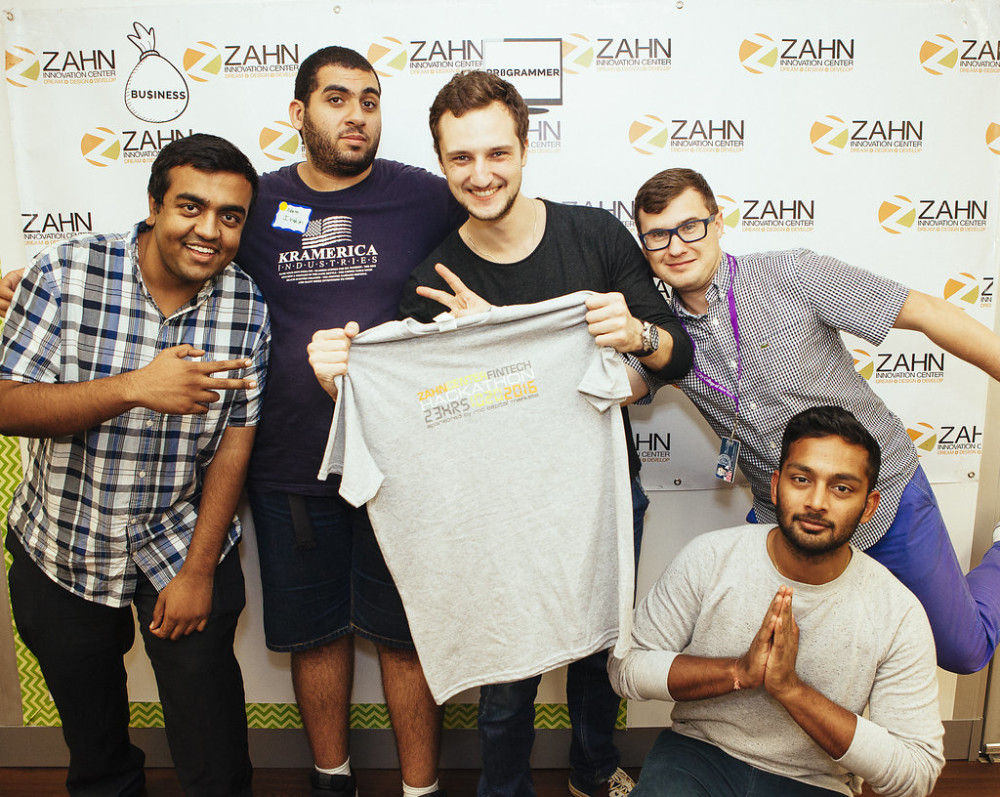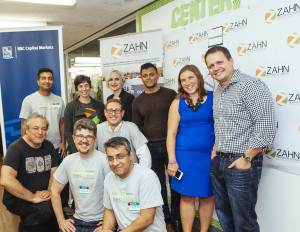Katherine Olives

Last Thursday and Friday, October 20th-21st, we hosted a sold out Fintech Hackathon sponsored by RBC Capital Markets. Over 50 computer science and economics/business students participated in the 24-hr hackathon where they used technology to solve problems in the finance industry. Students were presented with three challenges from RBC Capital Markets. Over the course of 24 hours, students split into 12 teams and explored one of these challenges with varying levels of difficulty. At the end of 24 hours–and an all-nighter–teams presented their ideas for the chance to win a total of $4,000 in prizes!
The events turnout was tremendous, and the energy in the room was unmatched. If we had to choose one word to describe our whirlwind Hackathon it would be €˜inspiring. The energy and excitement in the room was palpable and my colleagues and I were deeply impressed by the level of creativity and sophistication in each solution. RBC Capital Markets is committed to spearheading innovation and working with the next generation of brilliant thinkers and coders, commented Jeremy Sonnenburg, Head of Technology at RBC Capital Markets.
Solutions born at the Hackathon included a chatbot application to interact with users and provide answers to questions on financial reports such as quarterly and annual SEC filings. This idea was designed by SAAM, a team made up of both coders and graduate economics students. Their program won third place (and bragging rights!), and implements natural language processing to determine the context of the question asked and correlates that with the information that needs to be provided.
A second place prize of $1,000 went to Team Awesome. They designed a financial search engine with the intention of querying live data. This was designed to reduce the time RBC Capital's data analytics team spends searching for financial data. The search engine is designed to take requests using a pseudo Natural Language Processing (NLP) algorithm. This algorithm takes the string queries and analyzes them as regular expressions. When a parameter that matches the query is found, it returns the appropriate answer.
Finally, first place and $3,000 went to Cycloq, made up of Michael Hendrickson (Coder), Haris Nadeem (Business), Daniel Obi (Coder), John Spencer (Coder), and Samuel Quintana (Coder). Their idea has three components: a web app, a privileged user database, and a word-filter dictionary. The web app included an email client and an admin interface where employees send emails via a client interface that informs them if their email is flagged. Admins would have access to view emails that were flagged and view the reason or words which triggered the email to be flagged. Cycloq used 500,000 Enron emails and a natural language processing toolkit to form their list of trigger words. In the future, the team hopes to add a certain level of complexity to the filters by implementing weights on the keywords and incorporate a machine learning algorithm into the system to maintain and optimize the filter list.
At the Zahn Center, we hear a lot of great ideas on a regular basis, but we rarely get to watch how solutions come to life in real time. Entrepreneurship was alive that day, said Devin Voorsanger, Program Director of Technology Entrepreneurship at the Zahn Innovation Center. We strive to make sure City College students stay on the cutting edge; thats why bringing a Fintech Hackathon to campus was important to us. If we can bring together two prominent departments on campus–Economics and Computer Science–to spark innovation, then weve fulfilled our mission.
